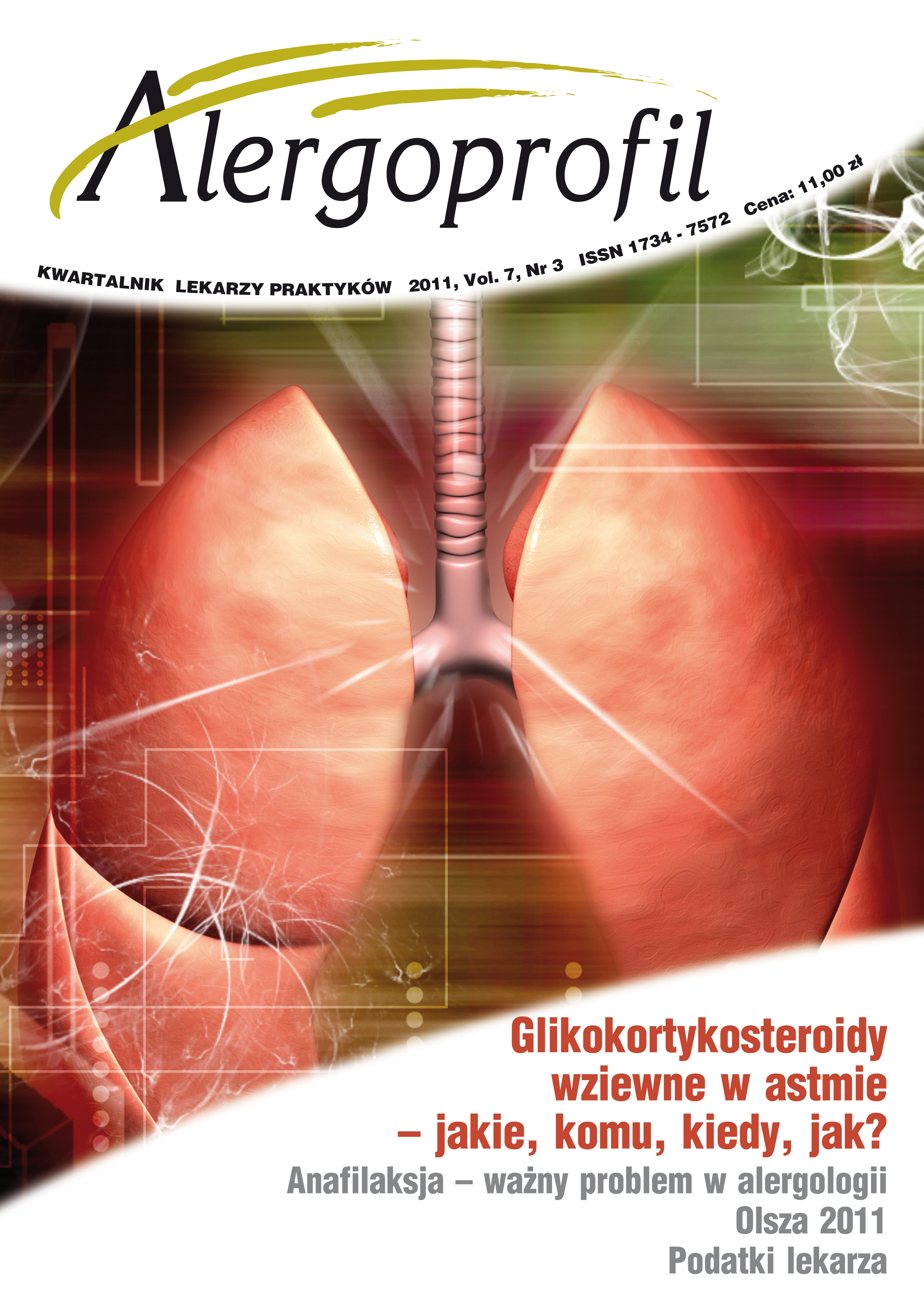A comparison of patch test results with the European Baseline Series, Polish Baseline Series and an original extended series in the diagnosis of patients with suspected contact allergy
Main Article Content
Abstract
Eczema is one of the most common clinical pictures encountered in allergist’s practice. In all cases of chronic eczema, patch testing should be performed to confirm or exclude the diagnosis of allergic contact dermatitis. Moreover, the tests may reveal contact allergy developing secondarily in the course of other inflammatory skin disease and complicating its further course.
Aim: To analyse the impact of the size and composition of hapten series on the diagnostic efficacy of patch tests.
Patients and methods: A retrospective analysis of 64 patients qualified for patch testing who were tested with an original extensive series consisting of 40 test substances („Krakow Series”, KRK). We analysed the obtained test results with the KRK series in comparison to hypothetical results if the patients would have been tested only with the European Baseline Series (EBS, 28 substances) or Polish Baseline Series (POL, 30 substances). The outcome measures of the diagnostic efficacy were numbers of people with contact allergy as detected witch each series (at least one positive reaction), and the mean number of positive reactions in the group.
Results: Patch testing would enable the detection of contact allergy in 55 patients when testing only with the EBS series and in 56 patients when testing with POL, while 58 patients were ultimately diagnosed with KRK. Mean number of positive reactions in the study group was 1.94 for EBS, 2.16 for POL, and 3.28 for KRK (p <0.001).
Conclusion: The use of extensive test series increases the effectiveness of patch tests, expressed both as a higher number of subjects with detected contact allergy, and higher number of sensitizations detected per individual patient.
Downloads
Article Details
Copyright: © Medical Education sp. z o.o. This is an Open Access article distributed under the terms of the Attribution-NonCommercial 4.0 International (CC BY-NC 4.0). License (https://creativecommons.org/licenses/by-nc/4.0/), allowing third parties to copy and redistribute the material in any medium or format and to remix, transform, and build upon the material, provided the original work is properly cited and states its license.
Address reprint requests to: Medical Education, Marcin Kuźma (marcin.kuzma@mededu.pl)

